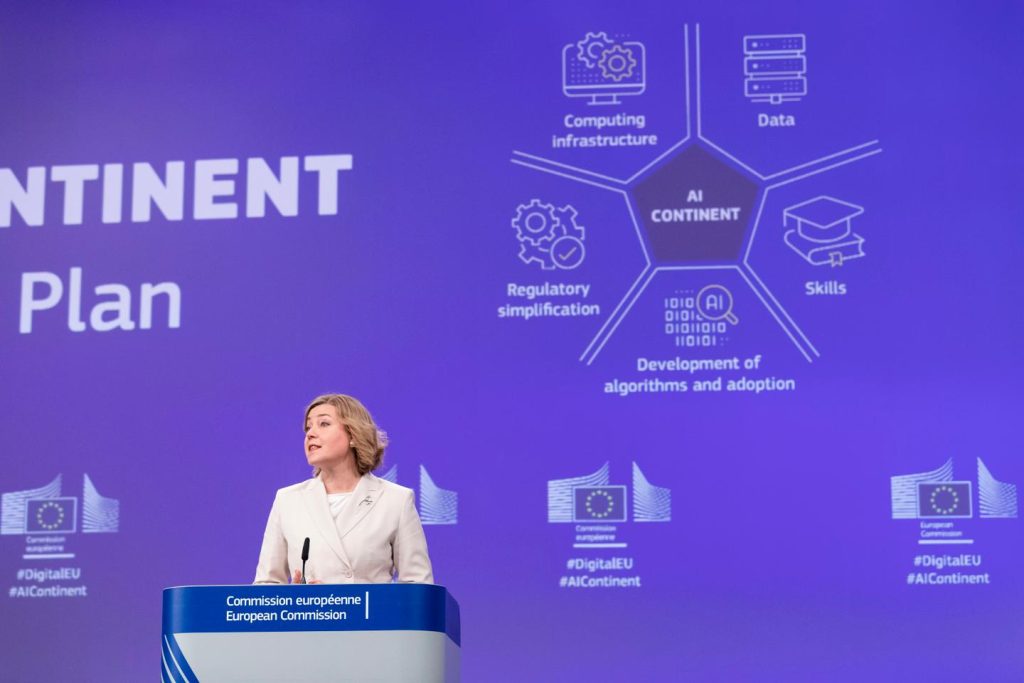Listen to the article
The European Union’s first presidential election of 2025 is underway in Romania, where authorities have implemented unprecedented digital transparency measures to combat online manipulation following a controversial electoral crisis last year.
Since April 4, when the campaign officially launched for Romania’s presidential election scheduled for May 4 and 18, social media platforms across the Eastern European nation have been transformed by a new system of mandatory digital disclosure codes. The system requires that all political content be clearly labeled with two distinct codes: one identifying the candidate being supported and another indicating whether the message is sponsored advertising.
The changes were prompted by last November’s constitutional crisis, when Romania’s presidential election was dramatically annulled between the first and second rounds. The Constitutional Court intervened after discovering a large-scale manipulation operation on TikTok that significantly benefited Calin Georgescu, a pro-Russian candidate who had surprisingly led the first round despite conducting virtually no traditional campaigning.
Nationalist candidate George Simion, currently leading in polls, demonstrated the new system in action on April 15 when he posted a message criticizing “globalist elites [who] have completely lost touch with reality.” His post was required to include the designation “material publicitar politic /CMF 31250007/CPP A0B0C1D1E1.” The first code identifies Simion’s campaign, while the second indicates his party paid to promote the message without targeting specific demographic groups of internet users.
Political messages failing to comply with these transparency requirements face swift removal, with Romanian authorities pledging deletion “in less than five hours” of non-compliant content. The exceptional electoral legislation creating this system was hastily adopted in January as a direct response to the previous election’s manipulation scandal.
Romania’s digital transparency experiment is being closely watched across the European Union, where concerns about social media’s impact on elections have intensified. The European Commission has identified election integrity as a key priority, with Commissioner for Technological Sovereignty Henna Virkkunen recently highlighting the need for greater digital safeguards during a Brussels press conference on artificial intelligence.
For Romanian voters, the coded messages represent an unusual yet visible reminder of the digital battleground their democracy has become. While potentially confusing for the general public, the transparency measures aim to provide voters with clear information about who is funding and distributing political messaging they encounter online.
The stakes are particularly high in Romania, a strategic EU and NATO member that shares a border with Ukraine. The rise of pro-Russian sentiment, as evidenced by Georgescu’s unexpected success last year, has alarmed Western allies concerned about potential foreign influence operations in the region.
Political analysts note that Romania’s approach represents one of the most aggressive attempts by any democratic nation to impose transparency on digital political communications. The system goes beyond traditional disclaimer requirements seen in other countries by implementing a standardized coding system that theoretically allows for easier monitoring and enforcement.
Critics question whether these measures will truly prevent sophisticated manipulation, while supporters argue that any step toward greater transparency benefits democratic processes. The effectiveness of Romania’s digital disclosure experiment will likely influence future electoral regulations across Europe, where many countries are struggling to address similar concerns.
As the May election approaches, Romanian authorities face the challenge of enforcing these new regulations across multiple platforms while ensuring voters understand the meaning behind the cryptic codes now accompanying political messages throughout their social media feeds. The outcome will provide valuable insights for democracies worldwide grappling with the evolving challenge of ensuring electoral integrity in the digital age.
Verify This Yourself
Use these professional tools to fact-check and investigate claims independently
Reverse Image Search
Check if this image has been used elsewhere or in different contexts
Ask Our AI About This Claim
Get instant answers with web-powered AI analysis
Related Fact-Checks
See what other fact-checkers have said about similar claims
Want More Verification Tools?
Access our full suite of professional disinformation monitoring and investigation tools




15 Comments
Requiring clear labeling of sponsored political content is a sensible approach. Voters deserve to know the source of the information they’re seeing online.
Agreed. Transparency is crucial for maintaining public trust in the electoral process.
The annulment of the previous election due to TikTok manipulation is concerning. Romania is right to take strong action to prevent similar issues this time around.
The last election crisis in Romania highlights how vulnerable democracies can be to digital manipulation. I hope these new measures prove effective.
I’m curious to see how effective the new digital transparency codes will be in identifying sponsored political content. It’s a complex issue, but these steps seem like a positive move.
Agreed. Transparency is key, but enforcing the new rules will be critical. I hope they can effectively track and label all attempts at social media manipulation.
While digital transparency is important, I’m curious to see how it’s implemented in practice. Enforcement will be key to ensuring compliance.
These measures seem like a positive step, but I wonder about potential loopholes or workarounds that bad actors might exploit. Vigilance will be essential.
This highlights the growing threat of digital disinformation campaigns targeting elections. I’m glad to see Romania taking proactive steps to combat it.
Absolutely. Protecting the integrity of elections from online manipulation should be a priority for all democracies.
I wonder how the new transparency measures will impact political campaigning on social media in Romania. It could level the playing field, but also pose challenges for candidates.
It will be interesting to see how the new transparency codes impact voter behavior and decision-making in the upcoming Romanian election.
Exactly. Empowering voters with clear information about the source of political content is a critical step.
This is an important measure to combat online manipulation ahead of Romania’s election. Maintaining the integrity of the democratic process is crucial, especially given the challenges faced in the last election.
Combating online disinformation is a growing challenge for democracies around the world. I’m glad to see Romania taking proactive steps to address it.